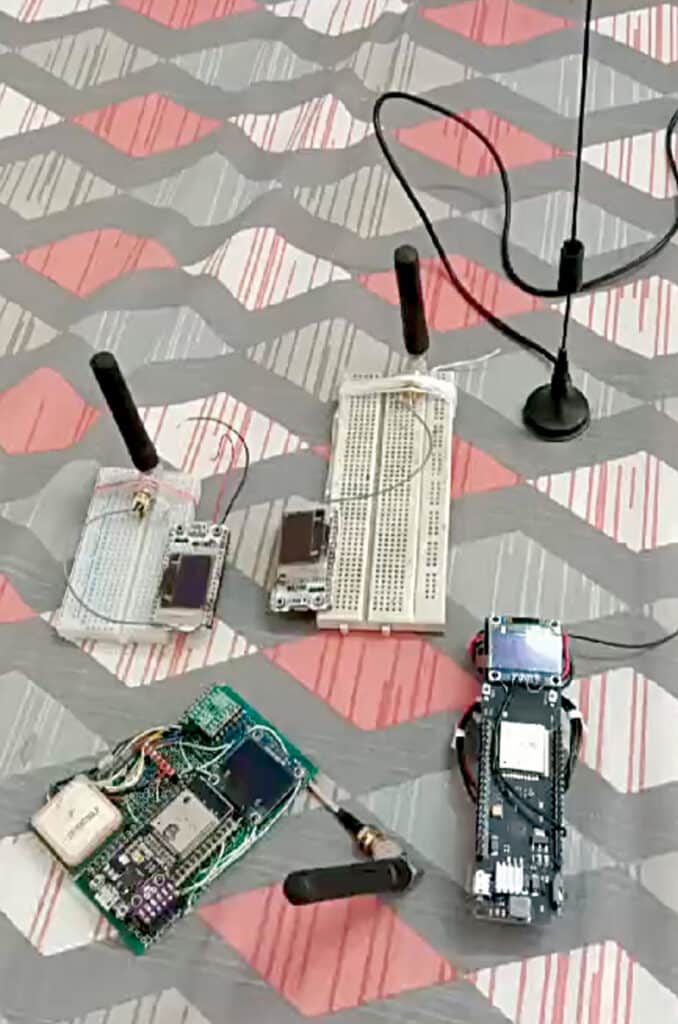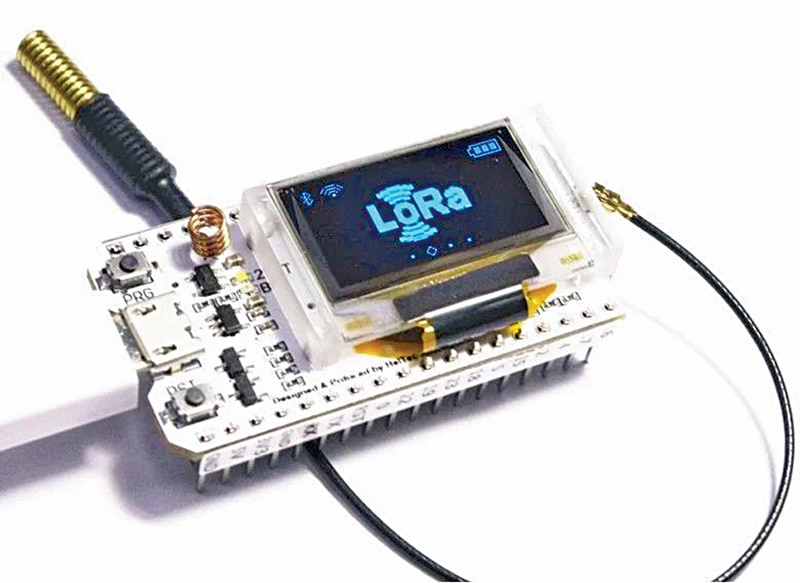
Besides LoRa (acronym for long range) radios, there is another kind of radios that are already occupying the market segment with variety of applications, and that is Zigbee radios. Although Zigbee radios are substantially costly, they are in use due to their exceptional easy meshing capability.
Zigbee radios can be placed in mesh configurations where every Zigbee is connected as a node with the others such that if one or many nodes fail, the network will still be functional!
POC Video Tutorial in English:
POC Video Tutorial in Hindi:
Meshtastic is an open-source project available on GitHub. Its LoRa network has a very long range and low power consumption and is highly encrypted and immune to electromagnetic interferences. Author’s prototype is shown in Fig. 1

Meshtastic Network
Meshtastic.org has introduced open source software to create the LoRa mesh network. LoRa works great on line of sight. Therefore, if one or two nodes can be placed at a strategically high place, all the nodes can talk to each other easily.
This is an attempt to create a practical mesh network for EFY readers where the sensor data, GPS position, and the triggering alarm can be operated with ease. The entire setup can be scaled up for bigger use.
Since this is not Arduino programming where the connections can be changed to required advantages, it needs to have fixed connections in line with Heltec LoRa-ESP32 right next to ESP32.
Though this is not very difficult if the instructions are correctly followed, buying the ‘ESP32 Heltec LoRa’ from the market is also an option. The components used to make this device are listed in Bill of Materials table.
The Heltec LoRa module is also available from online stores at a higher cost. However, if you dare to follow this DIY, it is possible to build a handmade ESP32 Heltec LoRa module in less than ₹1500.
You will need to procure some items first—an ESP32 development module, a 2.4cm (0.96-inch) OLED, an SX1278 868MHz SPI LoRa radio. Fig. 2 shows the Heltec LoRa module.

| Bill of Materials | |
| Items | Quantity |
| Heltec ESP32 LoRa/ESP32 MCU (MOD2) | 3 |
| HT7333A – 3.3V regulator (IC1) | 1 |
| SX1278 SPI LoRa (MOD1) | 3 |
| BME280 (MOD4) | 1 |
| MCP9808 – I2C OLED (MOD3) | 1 |
| SW1 | 1 |
| uBLOX GPS sensor with ANT.1 | 1 |
| 5V battery/adaptor | 1 |
Construction
To make a workable mesh network for testing, you need to have three or more LoRa nodes built as per the schematic, or purchase readymade ESP32 Heltec LoRa board from the market.
At least one I2C sensor from the list is to be procured (BME280, BME680, MCP9808, INA260, INA219, SHTC3, SHT31, PMSA0031).
Now, to flush each ESP32 board with Meshtastic software, connect the board to the USB terminal of your computer and go to https://flasher.Meshtastic.org/. This link works only in Chrome or Edge browser.
Please register to view this article or log in below. Tip: Please subscribe to EFY Prime to read the Prime articles.





